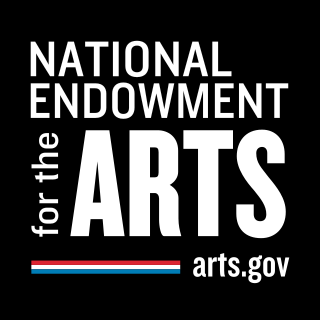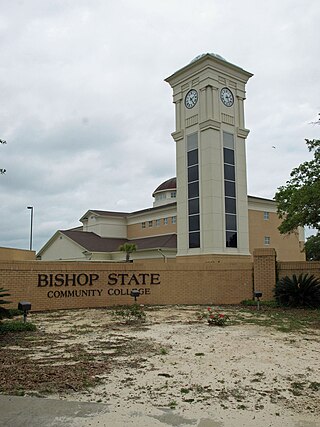Related Research Articles
The Ford Foundation is an American private foundation with the stated goal of advancing human welfare. Created in 1936 by Edsel Ford and his father Henry Ford, it was originally funded by a US$25,000 gift from Edsel Ford. By 1947, after the death of the two founders, the foundation owned 90% of the non-voting shares of the Ford Motor Company. Between 1955 and 1974, the foundation sold its Ford Motor Company holdings and now plays no role in the automobile company.
A not-for-profit arts organization, also known as a nonprofit arts organization, usually takes the form of a not-for-profit organization, nonprofit organization, association, or foundation. Such organizations are formed for the purpose of developing and promoting the work of artists in various visual and performing art forms such as film, sculpture, dance, painting, multimedia, poetry, and performance art.

The National Endowment for the Arts (NEA) is an independent agency of the United States federal government that offers support and funding for projects exhibiting artistic excellence. It was created in 1965 as an independent agency of the federal government by an act of the U.S. Congress, signed by President Lyndon B. Johnson on September 29, 1965. It is a sub-agency of the National Foundation on the Arts and the Humanities, along with the National Endowment for the Humanities, the Federal Council on the Arts and the Humanities, and the Institute of Museum and Library Services.
Job's Daughters International is a Masonic affiliated youth organization for girls and young women aged 10 to 20. The organization is commonly referred to as simply Job's Daughters or Jobies, and sometimes abbreviated as JDI. Job's Daughters welcomes many religions and cultures. The only religious prerequisite is a belief in a Supreme being.
National Council may refer to:
The California Arts Council is a state agency based in Sacramento, California. Its eight council members are appointed by the Governor and the California State Legislature. The agency's mission is to advance California through arts, culture and creativity.

Nancy Hanks (1927–1983) was an American arts administrator and art historian. She was the second chairman of the National Endowment for the Arts (NEA), appointed by President Richard M. Nixon and served from 1969 to 1977, continuing her service under President Gerald R. Ford. During this period, Hanks was active in the fight to save the historic Old Post Office building in Washington, D.C. from demolition. In 1983, it was officially renamed the Nancy Hanks Center, in her honor.

Ashland Community and Technical College (ACTC) is a public community college in Ashland, Kentucky. It is an open-admissions college and part of the Kentucky Community and Technical College System. It was founded in 1938 to allow students the opportunity to obtain associate degrees, certificates and diplomas as well as provide vocational and technical training. The courses offered range from Cosmetology, Culinary Arts, business, education, health-related courses, information technology and a range of industrial technology degrees among others.
Community foundations (CFs) are instruments of civil society designed to pool donations into a coordinated investment and grant making facility dedicated primarily to the social improvement of a given place. Community foundations are a global phenomenon with 1700 existing around the world, of which over 700 are in the United States. Private foundations are typically endowed by an individual or a single family.
The Leadership Conference on Civil and Human Rights, formerly called the Leadership Conference on Civil Rights, is an umbrella group of American civil rights interest groups.
Arts administration is a field in the arts sector that facilitates programming within cultural organizations. Arts administrators are responsible for facilitating the day-to-day operations of the organization as well as the long term goals by and fulfilling its vision, mission and mandate. Arts management became present in the arts and culture sector in the 1960s. Organizations include professional non-profit entities. For examples theaters, museums, symphony orchestras, concert bands, jazz organizations, opera houses, ballet companies and many smaller professional and non-professional for-profit arts-related organizations. The duties of an arts administrator can include staff management, marketing, budget management, public relations, fundraising, program development evaluation, community engagement, strategic planning, and board relations.
The Missouri Humanities Council, also known as Missouri Humanities (MH), is a 501(c)(3), non-profit organization that was created in 1971 under authorizing legislation from the U.S. Congress to serve as one of the 56 state and territorial humanities councils that are affiliated with the National Endowment for the Humanities (NEH).
Arts Midwest is one of six not-for-profit regional arts organizations created to “encourage development of the arts and to support arts programs on a regional basis.” Arts Midwest's mission is to "build unprecedented opportunity across the Midwest by advancing creativity.” Its vision is that Midwestern creativity powers thriving, entrepreneurial, and welcoming communities. Arts Midwest is primarily funded by the National Endowment for the Arts (NEA), and is charged with supporting artists and arts organizations, and providing assistance to its nine member states of Illinois, Indiana, Iowa, Michigan, Minnesota, North Dakota, Ohio, South Dakota, and Wisconsin.
The Mid-America Arts Alliance (M-AAA), headquartered in Kansas City, Missouri, is one of six not-for-profit regional arts organizations funded by the National Endowment for the Arts (NEA). Founded in 1972, M-AAA creates and manages regional, multi-regional, national, and international programs including traveling exhibitions, performing arts touring, and professional and community development. The Alliance serves the state arts councils of Arkansas, Kansas, Missouri, Nebraska, Oklahoma, and Texas.

Bishop State Community College (BSCC) is a public, historically black community college with campuses and facilities throughout Mobile and Washington Counties in Alabama. The college was founded in Mobile, Alabama, in 1927, and is accredited by the Southern Association of Colleges and Schools Commission on Colleges. It offers more than 50 associate degree and certificate programs.

The Delaware Valley Legacy Fund (DVLF) is a community foundation whose mission is to support the needs of the lesbian, gay, bisexual, and transgender (LGBT) and straight-allied communities in Eastern Pennsylvania, Delaware, and New Jersey. It is engaged in building a permanent endowment and philanthropic apparatus to serve the fundraising and grant making. DVLF was founded in 1993 and is based in Center City Philadelphia.
Central Community College is a two-year Nebraska public college with three campuses, in Columbus, Grand Island, and Hastings. In addition the college has learning centers in Holdrege, Kearney, and Lexington. Under the terms of a 1971 Nebraska state law, Central is one of six regional community colleges in the state, serving a group of 25 counties and funded by property taxes within those counties in addition to state aid, tuition and fees, and grants.
The Wisconsin Arts Board (WAB) is a state agency based in Madison, Wisconsin. It is one of fifty-six state art agencies of the United States and works as a partner regionally with Arts Midwest and nationally with the National Endowment of the Arts. WAB's mission statement declares that it “is the state agency which nurtures creativity, cultivates expression, promotes the arts, supports the arts in education, stimulates community and economic development and serves as a resource for people of every cultural heritage.”
Humanities Nebraska (HN) is a non-profit affiliate of the National Endowment for the Humanities (NEH) based in Lincoln, Nebraska. HN creates and supports public humanities programs with the goal of engaging the public with history and culture.
References
- ↑ "Revised statutes of Nebraska: Reissue of 1999". Act of 1978. Nebraska Legislature. p. 602.
- ↑ "Resource Study. Human Services, Health, Education, Arts in Western Nebraska, and Law Enforcement in Banner, Kimball and Scotts Bluff Counties, Nebraska". Defense Technical Information Center . Defense Technical Information Center: 202.